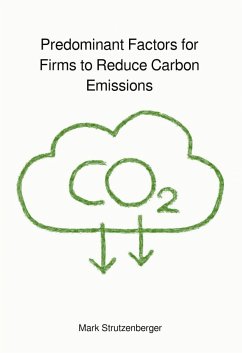This paper intends to find the predominant factors for corporations to reduce their carbon emissions. In light of an in-depth literature review, various determinants have been assessed and compared according to their importance. Results show that carbon pricing schemes creating revenue which can be redistributed are the most effective governmental measures. Even though there are ways to circumvent these systems, such as moving operations, bribery or using bargaining power to adjust bills in the first place, a large majority of firms were found to adapt to new laws. The most significant reasons in the organisational domain are economic benefits arising mainly thanks to cost savings and risk mitigation of anticipated regulation as well as competition. Moreover, stakeholders play a key role in the decision-making process of firms. Especially market actors with direct influence on a company's turnover, like consumers and investors, were observed to be able to exert great power on enterprises. By giving an insight into these factors, this paper helps to understand what can possibly spur urgently needed action for climate by corporations.
Dieser Download kann aus rechtlichen Gründen nur mit Rechnungsadresse in A, B, BG, CY, CZ, D, DK, EW, E, FIN, F, GR, H, IRL, I, LT, L, LR, M, NL, PL, P, R, S, SLO, SK ausgeliefert werden.









